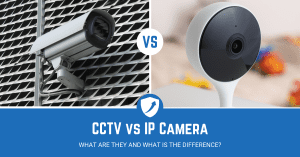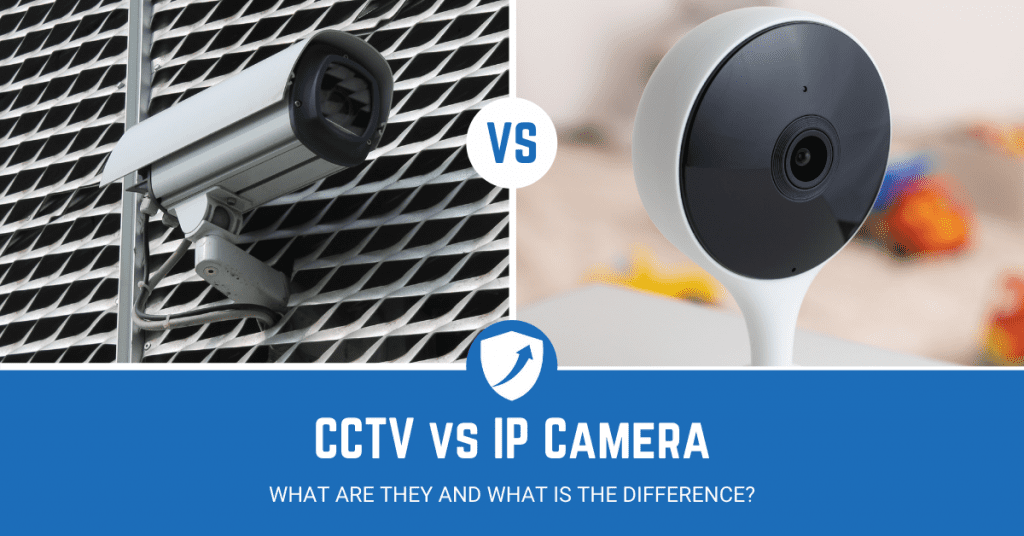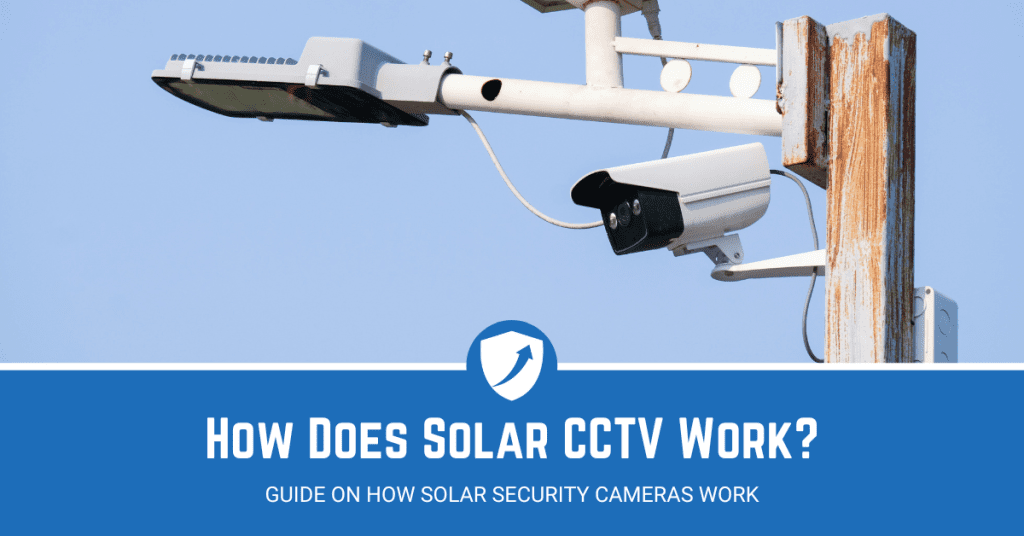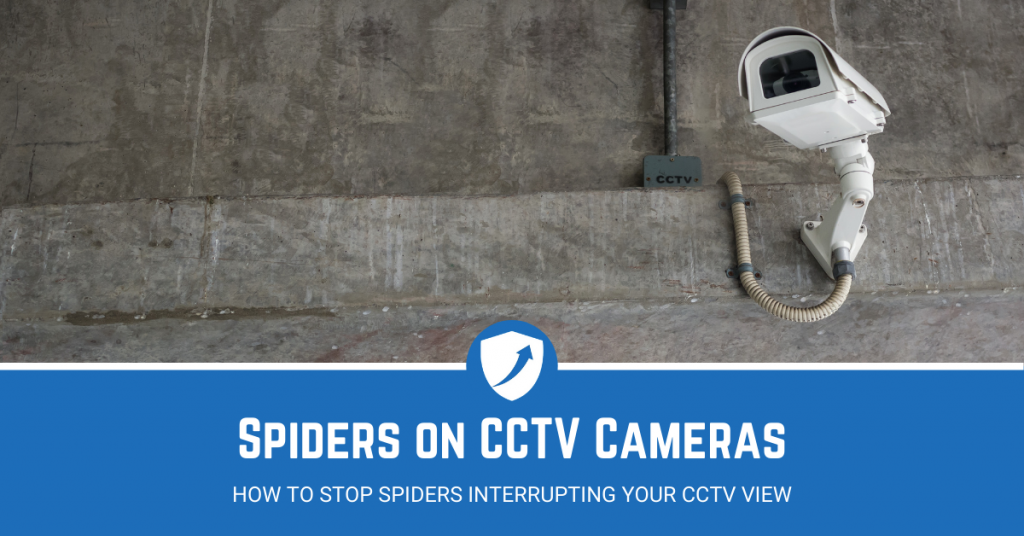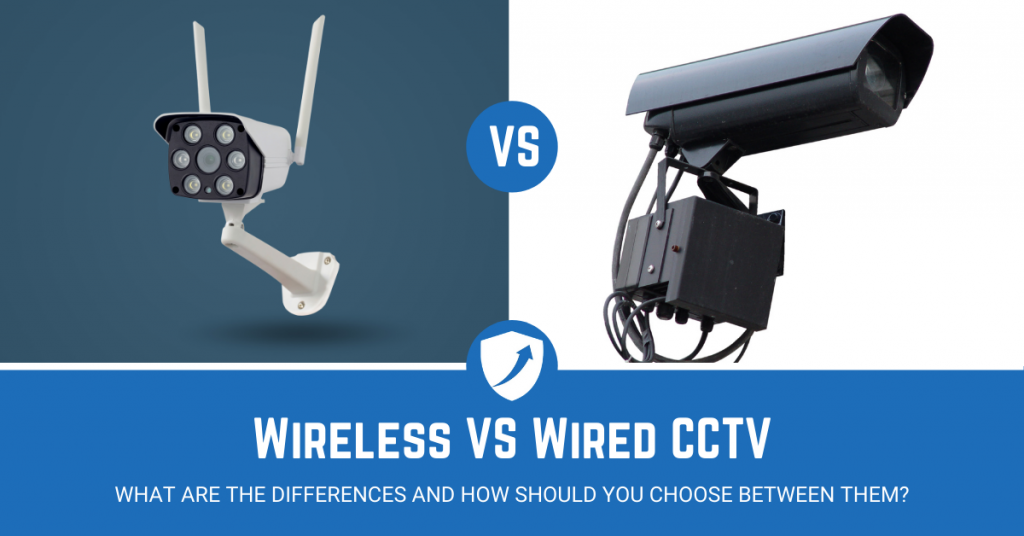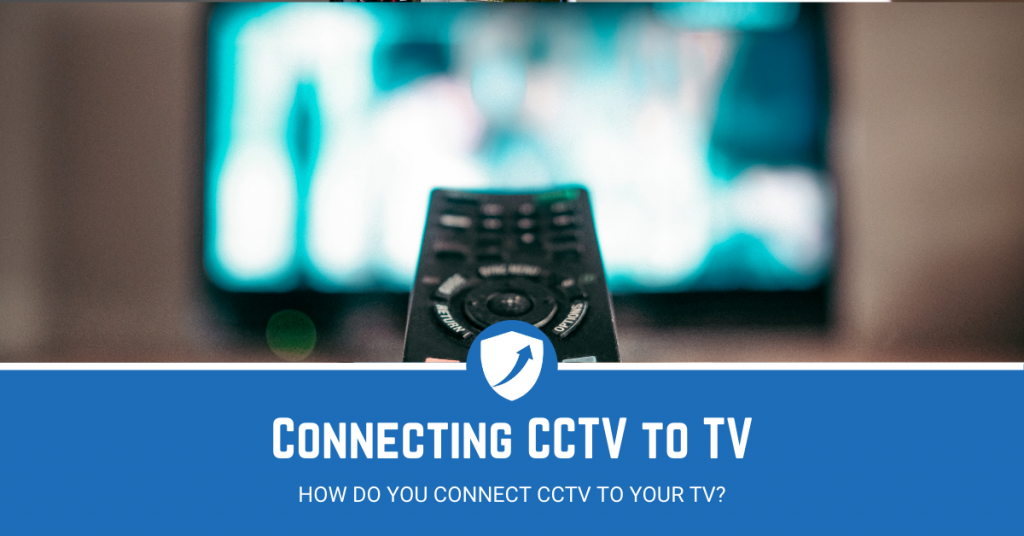Closed Circuit Television (CCTV) cameras have evolved a long way since their original inception.
However, what CCTV devices do is still the same, they are a form of security and surveillance.
Despite this, the technology has been tailored to cater for all CCTv system sizes, all locations, indoors, outdoors, and whatever you need to secure your locations.
In this guide, we are going to explore the two core types of CCTV Camera set-ups, and take a look at some of the sub-groups within the broad categories of Wired CCTV vs Wireless CCTV.
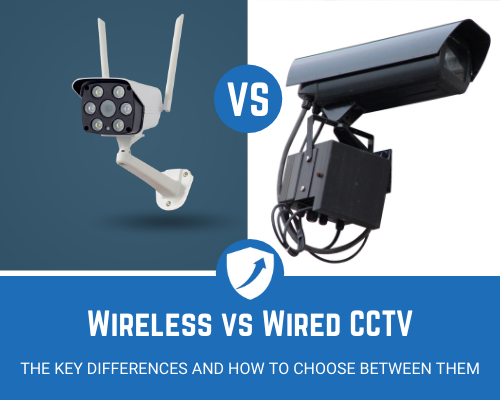
We will be looking at some benefits of each type and highlight some of the major differences between these two setups, covering:
- Wireless CCTV Background
- Wired CCTV Background
- Benefits of Wireless CCTV
- Benefits of Wired CCTV
- Wired CCTV vs Wireless CCTV – 4 Differences
- Summary
What's in this Guide?
What is Wireless CCTV?
Wireless Closed Circuit Television (CCTV) is a form of security that has become much more popular in recent years, and relies on newer surveillance technology.
As the name implies, the cameras used are wireless and can be placed in more flexible areas than the wired counterparts. These CCTV systems aim to solve the hardest issue associated with wired cameras, the installation.
People often incorrectly assume there are no cables involved in the whole setup due to the name, but this only relates to the cameras being wireless not the entire system.
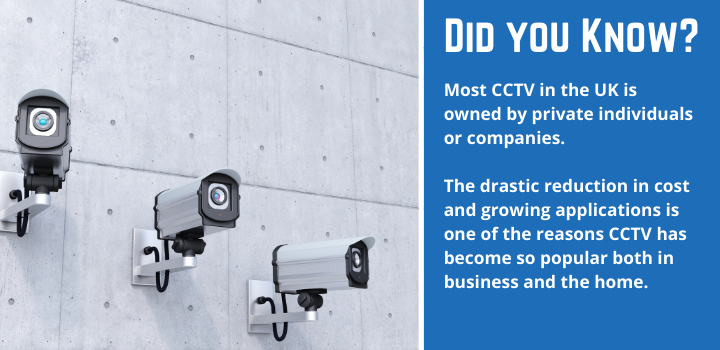
To put this into context, they may be linked to a video recorder and a monitor, which still require access to wired power.
Types of Wireless CCTV Cameras
Network or IP CCTV Cameras
These devices transmit their video footage via the internet, meaning that the recorded data can be instantly accessed wherever you are. The images are compressed so they can be easily viewed and stay high quality.
These are easier than other types of cameras as you can often access them via an app or website login, meaning you do not have to link them to a video recorder and monitor to view.
This obviously means you have a much easier plug and play installation, even compared to other types of wireless CCTV cameras.
Although plug and play installation sounds good in theory, it’s often worth consulting a professional to take care of the CCTV system install. Before doing so, make sure to educate yourself on the cost of CCTV installation before getting quotes with no reference point.
Wireless CCTV Cameras
These can be designed in a number of ways. The core concept is to help minimise installation time and allow for placement wherever the user wants to.
These cameras are often found both inside and outside and are much more discreet due to their ability to be installed in more niche places.
Despite their name, these cameras can still require a power cord, but will connect wirelessly to your network. For reference, wired cameras typically need a cable to transfer the data and get power, hence the term wired.
What is Wired CCTV?
Wired CCTV is what most of us will think of when we consider surveillance technology. Cameras transmit both data and get power via either one or two cables and thus require more installation than their wireless cousins.
Regardless of the advances in technology, the basic design of wired CCTV has remained fairly true to the original cameras. Updates such as PoE (Power over Ethernet) allows for both the data and the power to come from one cable, effectively halving the effort required for installation.
Note: Despite what people think, the laws on domestic CCTV installation are different to those on a business premises. So, if you are a homeowner, you might want to understand the differences.
Types of Wired CCTV Cameras
Let’s have a quick look at a few of the most common wired camera types that are available on the market currently.
Dome Camera
These devices look like a semi-circle and are often seen indoors due to their wide field of view and ability to spin and tilt.
They can be used to cover a wide area outside too, and have become one of the most used and reliable types of wired cameras.
Bullet Camera
Possibly the first type of CCTV camera thought of when surveillance is mentioned, the classic rectangular shaped camera that looks like a bullet casing, as per the name.
These cover a tighter field of view, but often can see a lot further than their dome counterparts and will be used outside a lot. The addition of night vision on most models helped them become massively popular.
Pan Tilt Zoom (PTZ) Camera
The name pretty much sums up the flexibility of this type of wired CCTV camera, they have the ability to cover a much wider area and can be set-up to provide the best coverage of the area.
These are useful both as a deterrent but also when trying to track criminals in real time due to their versatility and ability to manually control the cameras.
What Are The Pros of Wireless CCTV?
Simple to Install
One of the biggest pros of wireless CCTV cameras is the fact that they are much simpler to install than wired cameras.
The ability to transmit the video footage via the network as opposed to via a cable creates a much easier installation.
More Flexible
Being able to place these cameras wherever you want without having to worry about cabling is a huge benefit for any home or business and whoever is integrating CCTV cameras into their security.
This means as long as there is a reliable network or WiFi connection the cameras can be placed anywhere without the limitations of your building’s layout or access to cables.
Easy to View
Wireless CCTV cameras are designed to be easy to access, manage and view regardless of where in the world you are.
With a lot of the systems utilising some form of app or similar technology to give you a quick way to check your camera feeds around the clock.
Discreet
CCTV Cameras can be obtrusive and unsightly to look at, a lot of people do not like having a camera being visible and feel like they are under constant watch.
So, having a wireless camera can be a blessing in disguise, literally. You can increase your security and keep a safe environment, without being too overt.
What Are The Pros of Wired CCTV?
As we have looked at, there are a lot of types of CCTV that fall under the wired umbrella. For the sake of simplicity, we will be covering the pros of wired as a whole and trying to cover points that affect all models.
Reliable
Wireless Cameras can be at the mercy of their connection, so for some companies are not a viable solution; Especially if they are planned to be outside and away from the network signal.
This is where the wired cameras come up trumps, they are very reliable and are much less likely to be affected by extraneous variables and outages.
Easier to Install Additional Cameras
As a rule of thumb, it is much easier to have a multi camera set-up when you are installing Wired CCTV Cameras. These will often connect to an NVR or DVR which will allow for a whole security network to be monitored with ease.
A Network Video Recorder or Digital Video Recorder can often support anything from 4 to 16 cameras, with some more advanced systems able to handle more.
This means once you have set up the first camera and linked it to the video recorder and found a CCTV monitor you can easily add the additional cameras to your system.
Long Term Solution
Once these cameras are set-up you have a fairly long term solution for your security. These cameras are designed to last and are less likely to be affected by outside factors.
They do require a good decision on placement however, because where they are installed will be where they have to stay, so always plan appropriately
More Visible
As Wired CCTV Cameras have to be placed in certain accessible places, there is a little less flexibility on where they can ultimately be installed. Despite this, there is a big advantage of having them in more typical locations.
As we know, CCTV aims to be not only the means of catching a criminal, but also about stopping the crime before it occurs. If the camera is easier to see then you are less likely to have a break in or breach.
CCTV Cameras are proven to be a great way to deter and reduce crime, so ensuring they are visible can be a simple method to secure your premises.
What Are The Main Differences Between Wired CCTV and Wireless CCTV?
In this section, we will be exploring some of the major differences between these two types of CCTV cameras. Although each system will be different to the next, there are some overlying themes which we will touch on.
Hardware
It is fairly obvious that the technological aspects of these two styles of CCTV Cameras are going to be different due to their names, but it goes a little deeper than that.
It is not just how the technology is linked to power it is also how the data is transmitted, and the features of the hardware themselves.
A Wired camera for instance can have either two cables (power and data transfer) or one cable via Power Over Ethernet (PoE) which transfers both simultaneously to a video recorder.
Whereas a Wireless CCTV camera uses either mobile data, such as 4G or your local WiFi network.
Reliance on WiFi
This leads us onto our next point. One of the most significant factors when deciding between these two types of CCTV cameras is the availability of your network and WiFi connection.
As we have seen, wireless CCTV cameras rely on these connections to transmit their video footage. So, if you have a spotty or inconsistent network, you may want to lean to install wired cameras.
Commitment to Location
When you are setting up a wired camera you have to commit to where it is going to be installed, due to the fact you need to connect either one or two cables to it.
On the other hand, wireless cameras can be moved as many times as you need until you find the perfect place for your camera. This flexibility is a huge factor that differentiates these two types of CCTV Cameras.
Price
Typically speaking with the introduction of newer technology in the security market, the price is often at a premium, so you are likely to find wired cameras for a lot cheaper.
There are a lot of factors that ultimately affect the price of a CCTV camera from the features on the camera, to the quality of the video, to the style of camera.
The budget that a company sets aside for their CCTV systems can be dramatically different. But, as a rule of thumb, wired cameras will be cheaper, but will require more complex set-up to install the CCTV.
Wired CCTV vs Wireless CCTV Summary
As you can see, there is no clear cut winner, and as with the majority of security decisions, it is down to what works for you and your company.
Sometimes the decision will be made for you, whether it is on the grounds of budget, installation location, or the strength of your WiFi network.
The goal of CCTV is to be a deterrent, stopping crimes before they occur, so there has been a huge influx in the amount of Dummy CCTV Cameras.
Whatever camera you decide on will definitely be an improvement over not having one, and it will all come down to how you want to manage and secure your premises.


